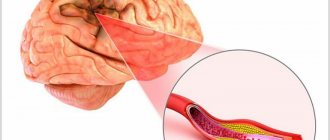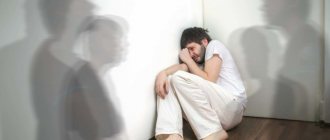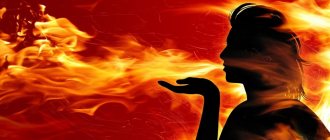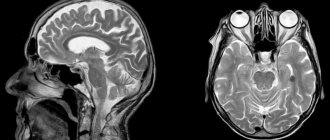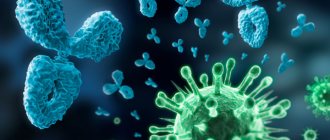The short-term craving for sleep during the day is well known to most of us. As a rule, this is a consequence of overwork, caused by increased physical and mental stress or chronic lack of sleep. Yawning and drowsiness often occur in a stuffy room with a lack of oxygen. Once you go out into the fresh air, your vigor returns. Thus, by observing the nature and duration of the period of drowsiness, we can conclude how serious the pathology is.
What to do if you constantly feel sleepy
If you constantly want to sleep, but at the same time you feel tired, your performance and concentration decrease, you should make an appointment with a doctor. Based on the results of the examination (if such a need arises), the therapist will prescribe a course of treatment or give a referral to a specialist. Most often, drowsiness is a companion to any chronic disease, so the patient will have to undergo examination so that the cause of the syndrome is correctly identified.
If a headache appears after sleep or the pain syndrome is present in a muted form during rest, while weakness and fatigue progresses, a visit to the doctor cannot be postponed. The symptoms described above are characteristic of diseases of the central nervous system, circulatory organs, heart and blood vessels, and many other pathologies.
Let us consider in more detail the features of the manifestation of drowsiness in various diseases.
How to cope with fatigue and apathy on your own
You can combat seasonal drowsiness by taking foods containing B vitamins and ascorbic acid. In addition to citrus fruits, the diet includes general strengthening agents.
An infusion of dried calamus roots (10 grams of raw material per glass of boiling water) is drunk a quarter glass 30 minutes before meals. It will help cope with physical fatigue and improve condition after serious illnesses and operations. It is useful to take in old age.
For lethargy resulting from depression, hypotension, and functional disorders of the nervous system, a tincture of Aralia tall or cordate roots is recommended. It is prepared with alcohol in a ratio of 1:5 and taken 30–40 drops 2–3 times a day. The juice of barberry berries, fresh grapes, pomegranate fruits, cherries, and infusion of cinnamon rose hips have a general strengthening effect on the human body.
Severe fatigue goes away after drinking Schisandra chinensis tincture, 30–40 drops per day, or eleutherococcus. Vital tone is increased by the infusion of mistletoe herb. Take a teaspoon of raw material per glass of boiled water at room temperature. After 8 hours of infusion, drink a third of a glass up to 3 times a day.
Stimulation of energy and endurance is needed for those who have constant weakness and drowsiness. Magnesium in purslane, beans, spinach, lettuce, poppy seeds, and coriander can restore vital potential. Cortisol contained in licorice root helps fight stress. You should take 2-3 grams of root in the morning and evening, reducing the amount of herbal remedy after 6-8 weeks.
Changing your lifestyle will help you get rid of chronic fatigue
If you cannot get rid of increased fatigue and apathy with folk remedies, then you need to consult a doctor. Conditions that make it difficult to work, disrupt sleep, or disrupt relationships with others require consultation. It is dangerous when, after a period of good health, severe apathy suddenly sets in.
In this case, you need to undergo a comprehensive examination by visiting an endocrinologist, cardiologist, neurologist, or psychotherapist.
Increased self-esteem
You can get rid of fatigue and drowsiness using psychological methods:
- the ability to forgive oneself for mistakes;
- spending free time with people who inspire and support self-confidence;
- planning to introduce new things into your life;
- reading good books, discussing them with friends.
Only positive emotions and good feelings protect against fatigue and prolong life. We must constantly please ourselves with good deeds. Relieves tension in the evening by taking a warm bath or massage. It is important to be able to keep your back straight. Then apathy and weakness will have no place in life.
Frequent drowsiness and fatigue, apathy, and lack of vital energy are cured when the cause of the condition is identified. Signs caused by external causes can be easily eliminated by changing your daily routine and diet. Internal causes must be dealt with together with specialists.
Vegetovascular (neurocirculatory) dystonia
Vegetative-vascular dystonia is a dysfunction of the vascular system associated with a disorder of the endocrine system (more precisely, with a change in the mechanism of neuroregulation). The disease is so common that many people do not perceive it as a serious illness. The high-risk group includes young and middle-aged women. In addition to drowsiness and headache, signs of VSD are:
- cardiopalmus,
- rapid onset of fatigue from minor physical exertion;
- feeling of lack of air (a person often sighs);
- periodic dizziness;
- pain in the heart area;
- cold extremities (especially hands and feet);
- tendency to sweat.
A large role in the development of the disease is played by hereditary predisposition, bad habits (smoking in the first place), a sedentary lifestyle, inability to withstand stressful situations, and emotional instability. VSD can develop against the background of cerebrovascular accident.
In most cases, symptoms of VSD disappear with lifestyle changes. Proper nutrition, physical exercise, adherence to a work-rest regime, and regular hardening lead to a significant improvement in well-being: drowsiness and headaches disappear, mood improves and performance increases.
In advanced cases, medications are prescribed to improve the functioning of the autonomic nervous system. The problem cannot be solved on its own; medical assistance is required.
Causes
The alternation of sleep and wakefulness in the human body is a mechanism that is clearly regulated by processes established by nature. They occur in the cerebral cortex and subcortex, a complex neural system, and are based on complex interactions of activating and inhibitory processes.
If a failure occurs in the cycle coordination system that works like a clock (even in one section), then it leads to a disruption - braking begins to predominate. The culprits for this could be:
- severe fatigue;
- stress at work and at home, emotional shock, nervousness;
- head injuries (traumatic brain injury, etc.);
- constant “lack of sleep” that continues for a long time;
- schizophrenia or any other mental disorder;
- taking medications (tranquilizers, antipsychotics, various antihistamines or sugar-lowering drugs) or drugs;
- infectious viral diseases (syphilis of the brain, encephalitis and meningitis);
- violation (cessation) of breathing - apnea, and the accompanying oxygen deficiency
- tumors, cysts, hematomas;
- disorders in the endocrine system and related diseases (diabetes mellitus, thyroid problems);
- liver and kidney diseases;
- genetics;
- heart failure;
- hypertension;
- exhaustion of the body.
These are not all the causes of hypersomnia. Its development may be associated with moving to a new place of residence, a change in lifestyle, a vacation in a situation that is sharply different from everyday life, the birth of a child, etc.
CNS lesions
Any brain damage caused by infection, trauma, postoperative complications or systemic diseases can lead to the development of drowsiness. Associated symptoms:
- headache;
- fatigue;
- lethargy;
- violation of attention and active orientation;
- change in facial expressions.
Drowsiness develops as you fall into a coma. Patients in a state of partial unconsciousness complain of headache, nausea, dizziness, aggravated by bright light and loud sounds.
Drowsiness also occurs when poisoned by poisons that affect the central nervous system. As a result of exposure to endogenous or exogenous toxins, depression of the central nervous system occurs. The person complains of weakness, headache, lethargy, and blurred vision. In some cases, drowsiness is replaced by bouts of excitement, after which severe fatigue sets in. The listed symptoms are alarming and indicate the need for emergency medical care.
Kinds
Based on developmental factors, excess sleep duration is divided into several types:
Pathological hypersomnia can appear as a result of a nervous disorder, as well as during sleep phenomena.
Idiopathic or psychophysiological hypersomnia occurs in completely healthy people aged 15-30 years against the background of chronic lack of sleep or constant stress. It is accompanied by “sleep intoxication,” a syndrome in which a person, after waking up, is confused, cannot orient himself in space, does not remember anything, and behaves strangely.
Post-traumatic hypersomnia is the consequences of mental and physical trauma, accompanied by stress. But its clinical manifestations are quite unpredictable, for example, “hysterical hibernation” - sleep for a long period with short awakenings. Infectious lesions of the brain and other pathologies can threaten lethargic (continuous multi-day) sleep.
Psychopathic hypersomnia is characteristic of patients with neurological disorders. It is unique in that an individual can sleep for several days, and the EEG shows that their brain is alert and active.
Narcolepsy is characterized by daytime sleep that is restless and does not bring rest. This is the most severe form of the disorder. At the same time, a person is not able to control himself; he can fall asleep in any position, anywhere. People who have long suffered from this disorder, sensing the approach of an attack, look for a comfortable place in advance and take a position that will allow them to sleep peacefully in comfortable conditions. When falling asleep and during sleep, the patient may experience hallucinations. His muscles relax so much that sometimes after waking up he is unable to move, sometimes even paralysis occurs for a long period.
Iatrogenic (drug-induced) hypersomnia develops after the use of certain medications.
Kleine-Levin syndrome or periodic hypersomnia - a drowsy state occurs from time to time along with an increased feeling of hunger. This is usually typical for young men (under 40 years old) and goes away on its own.
There are also species whose nature is unclear. As a rule, they are classified as idiopathic.
The disorder is also systematized according to its manifestations:
permanent hypersomnia – a monotonous desire to sleep. This condition is constant and accompanies the patient all day. Occurs as a result of injuries due to strong psychophysical stress, taking medications;
paroxysmal - attacks of drowsiness come suddenly and uncontrollably.
Drowsiness in renal and hepatic coma
Renal and hepatic coma are life-threatening conditions. Uremic (renal) coma is a consequence of chronic or acute renal failure. When the ability of the kidneys to cleanse the body of protein metabolism products decreases, pronounced signs of poisoning appear, which include lethargy, drowsiness, and indifference to the surrounding reality. The patient's only desire is to go to sleep to relieve fatigue.
In cases of acute renal failure caused by burn disease and other injuries, threatening symptoms increase rapidly. In chronic, difficult-to-treat diseases, such as renal amyloidosis or glomerulonephritis, increased drowsiness develops gradually and is often a harbinger of renal coma. Worrying signs also include blurred vision and itchy skin.
The occurrence of daytime sleepiness in children
For children under one year old, sleep is the best time for growth. When a child sleeps, he produces the hormone melatonin, which has a beneficial effect on the development of the baby. But if the child always feels sleepy and at the same time has a disturbance in the frequency of urination, loose stools for a long time, fever, no reaction to affection, no mother’s voice, loss of appetite, then it is necessary to urgently see a pediatrician.
A decrease in activity during the daytime may be associated with traumatic brain injury, poisoning, or helminthic infestations. When diagnosing a pathological condition, they can identify somatic diseases that occur without pronounced symptoms.
Brain contusion
With a brain injury, negative symptoms increase gradually, so the patient’s general well-being does not always correspond to the severity of the injuries received. Drowsiness and apathy may be the only signs indicating a pathological condition. As swelling increases, tissue compression increases, intracranial pressure increases, which causes symptoms such as headache, nausea, and vomiting. Urgent care should be called if the patient is sleeping after the injury without taking sedatives.
A perfect storm
The map for us will be the model of a “perfect storm” (a perfect storm, an English phraseological unit denoting an event in which a rare combination of circumstances sharply aggravates the events) (Fig. 1) [1], [2]. This is a model according to which, in adolescence, sleep is influenced by physiological and social factors: on the one hand, shifting it in time, on the other, reducing its duration. This subsequently affects well-being, mood, academic performance and can cause health problems.
Figure 1. The “perfect storm” model.
[2]
Hypothermia
The onset of drowsiness after a long stay in the cold is due to a pronounced disruption of metabolic processes in the cells of the cerebral cortex due to a decrease in body temperature and pathological changes in the nature of biochemical reactions. In case of short-term exposure to low temperatures, drowsiness goes away on its own, and in case of frostbite, comprehensive medical care is required. Surgeons, neurologists, neurologists, traumatologists, therapists and doctors of other specializations take part in rehabilitation.
Consequences of drug therapy
Some types of medications cause increased drowsiness, headaches, dry mouth and other unpleasant side effects. These drugs primarily include antipsychotics, tranquilizers, and antidepressants. The craving for sleep is also increased by some medications prescribed for hypertension, in particular, these include clonidine, amlodipine, and condiline.
Most previous generation antihistamines prescribed for the treatment of allergies have a hypnotic and sedative effect. These are diphenhydramine, pipolfen, suprastin, tavegil. Some drugs reduce concentration. When you stop taking the medication, all negative symptoms disappear.
General indications for sleep disturbances
If you feel sleepy during the day, you must adhere to simple rules and regulations, regardless of the reasons for the pathological condition:
- give up strong coffee and tea (especially in the evening);
- exclude heavy, high-calorie foods from the diet;
- include physical exercise and walks before bedtime in your daily routine;
- avoid stress;
- avoid hot baths and showers (give preference to warm and cool water);
- exclude alcohol and smoking.
Be sure to undergo a diagnostic examination. Drowsiness rarely occurs for no apparent reason, so you should not expect that the unpleasant condition will go away on its own.
Why do I always want to sleep
The desire to fall asleep often occurs in those who do not get enough sleep at night. Therefore, a person seizes every minute to take a nap. He can sleep in the transport while going to work or after lunch. But if this continues constantly, then you need to contact a specialist.
Fatigue
The tension that a person experiences during the day leads to the fact that after lunch the eyes begin to close. The condition is due to the fact that the work area is stuffy. There is not enough oxygen, brain hypoxia begins. Smoke in rooms from tobacco smoke leads to increased drowsiness.
It all starts with continuous yawning when the body tries to replenish oxygen reserves. Ventilating the room will help in this case. Fatigue also sets in when a difficult task is completed that requires the concentration of all forces. If the threshold of physiological capabilities is exceeded, then the desire to sleep arises.
Biorhythm failure
When you cannot fully rest at night due to a shift work schedule or a long flight to another country, you will want to sleep during the day. In rare cases, the failure causes wakefulness to become normal during the night. Then drowsiness sets in during the day.
Desynchronization of biorhythms occurs in autumn and spring, winter. It is associated with short daylight hours during the transition from one time to another. In winter, there is little sun for those who live in regions with cold climates. For urban residents, the entertainment industry leads to desynchronization. Visiting nightclubs, where there is no influx of fresh air and sunlight, will become an impetus for hypersomnia during the daytime.
These causes of drowsiness lead to depression. Doctors believe that when biological rhythms fail, disturbances occur in the functioning of the digestive tract, heart function, and a decrease in performance, quality, and life expectancy.
Infants are characterized by a state where they are active at night and sleep during the day. In this case, the child may develop irritability and tearfulness. It is necessary to gradually return him to a normal sleep pattern.
Wrong lifestyle
Lack of physical activity is typical for the majority of the planet's inhabitants. Sitting at a computer every day for office workers leads to poor blood supply to areas of the brain and a lack of oxygen. That's why you always want to sleep at your desk.
But here you can overcome drowsiness by doing exercises, taking a short walk around the office or a nearby park, which is even more useful. A driver who spends most of the day behind the wheel often falls asleep. And this is dangerous for the life of both himself and those around him. Obesity caused by poor nutrition can lead to constant sleepiness.
Daytime sleepiness occurs due to a lack of vitamins and microelements in the body. During transition periods, there is a deficiency of vitamins C, B12, B6, E. As a result, attacks of drowsiness occur. You can cope with them by including seafood, vegetables, and fruits in the menu. You need to increase the amount of foods rich in vitamins.
Treatment
If warning signs that are systemic in nature appear, including drowsiness and headaches, make an appointment with a specialist at the MedCom clinic in Ryazan. Experienced doctors will quickly and accurately diagnose and prescribe the correct treatment on an outpatient or inpatient basis. It has everything you need to undergo diagnostics and receive effective medical care, without queues or a bureaucratic approach. If you have any questions, please contact us by phone or through the online form.

